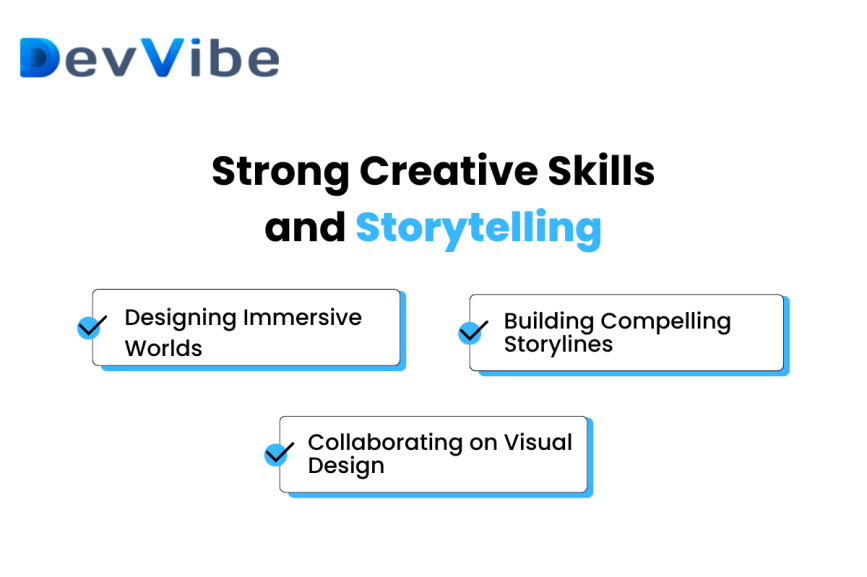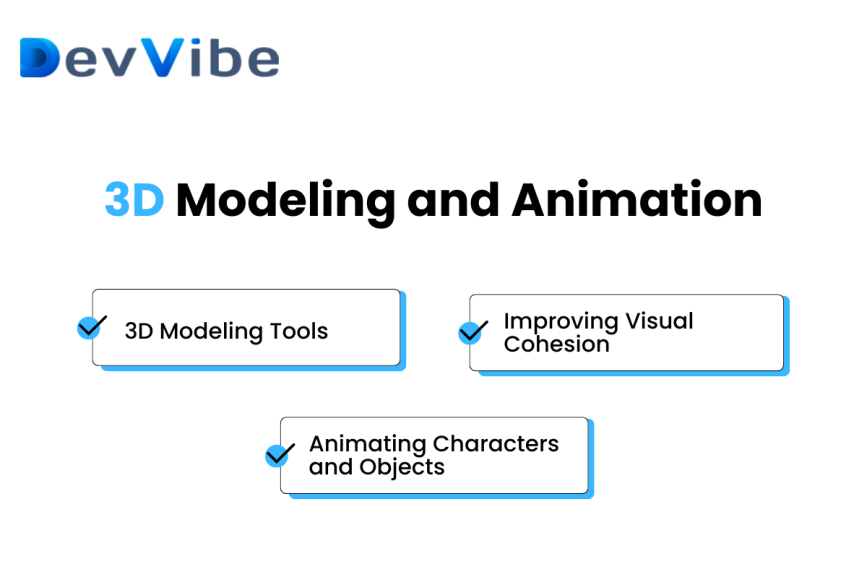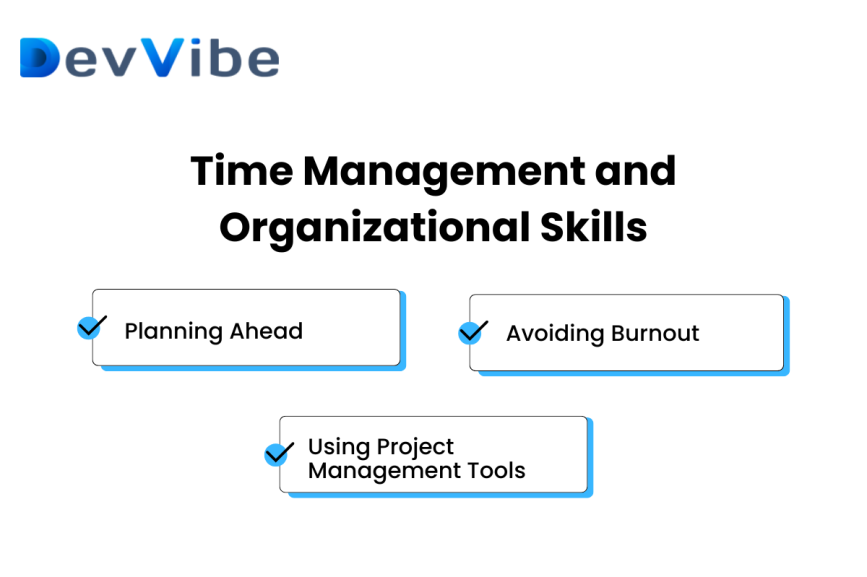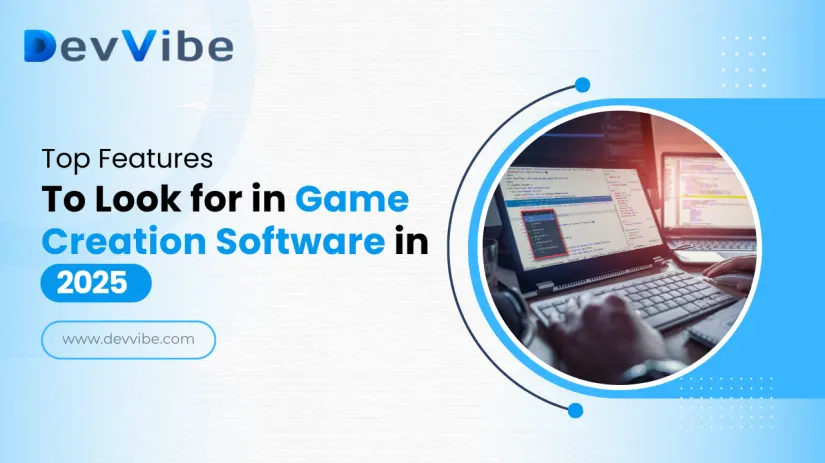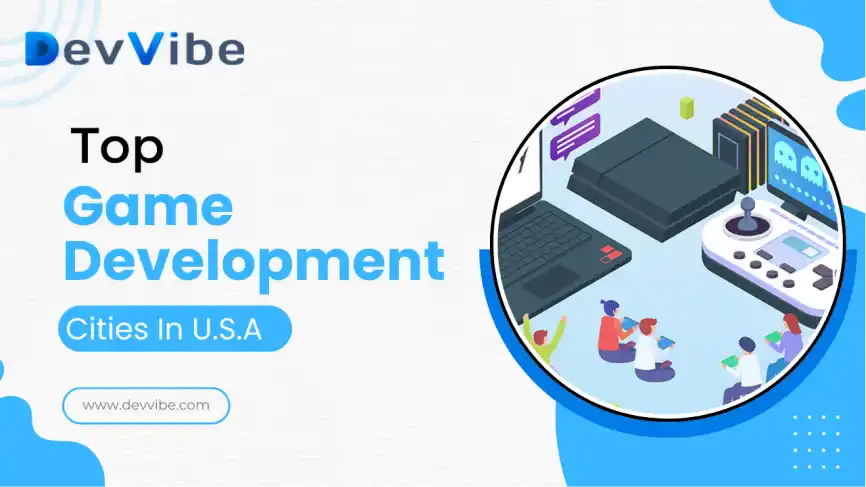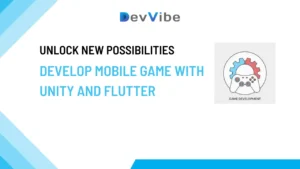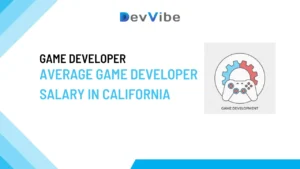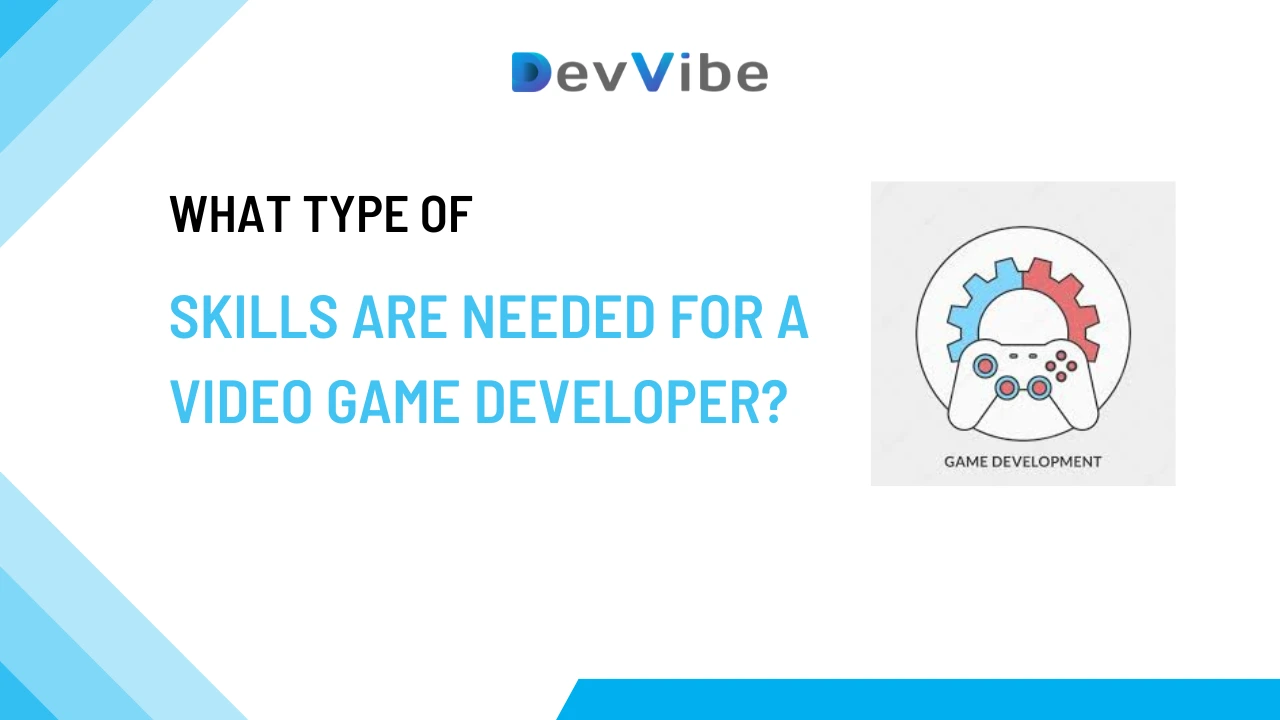
What Type of Skills Are Needed for Video Game Developer?
Video game development is a dynamic, multi-faceted field that requires a unique blend of technical expertise, creativity, and collaborative skills. As the gaming industry continues to expand, there is a rising demand for skilled developers who can bring captivating, immersive games to life. But what type of skills are needed for video game developer to thrive in such a competitive industry? From mastering programming languages to understanding game engines, this article explores the essential skills every aspiring developer should have. By developing these skills, you can build a strong foundation for a successful career in video game development.
Advanced Programming Skills
Programming is the foundation of all video game development. Without a strong grasp of coding, it’s challenging to create functional, polished games. So, what type of skills are needed for video game developer in terms of programming? The answer lies in mastering specific languages, understanding how code interacts with game elements, and optimizing performance.
- Programming Languages to Master: Popular languages for game development include C++, C#, and Python. C++ and C# are particularly critical due to their compatibility with game engines like Unity and Unreal Engine. Python, while more often used for scripting, can be beneficial for prototyping and developing AI behavior.
- Understanding Game Mechanics Through Code: Video games are intricate systems. Knowing how to code isn’t just about syntax; it’s about creating interactions within the game. For example, in a platformer game, developers use code to define physics, player movements, object interactions, and level transitions.
- Optimizing Game Performance: A skilled video game developer writes code that not only works but also runs efficiently. Optimizing code is essential for memory management, loading times, and ensuring the game performs smoothly on different devices. This aspect of programming is critical in large, complex games with high graphical demands.
Mastering programming is one of the core skills needed for a video game developer because it enables developers to control every aspect of gameplay, from the way characters move to the visual effects displayed.
Proficiency with Game Engines
Game engines are essential tools that streamline the development process. Understanding how to use a game engine effectively is another vital skill for video game developers. But what type of skills are needed for video game developer when it comes to game engines? The answer includes both technical familiarity and creative flexibility.
- Top Game Engines to Know: The most widely used game engines are Unity and Unreal Engine. Unity is known for its versatility, supporting both 2D and 3D game development. Unreal Engine, on the other hand, is renowned for its advanced graphics and is often used in AAA game development.
- Working with Engine Tools: Game engines come with built-in tools for physics, rendering, and asset management. Proficiency with these tools allows developers to create realistic environments, handle lighting effects, and manage the assets that bring a game’s world to life.
- Customizing Engines for Unique Games: Game developers often modify game engine settings to create specific effects. For example, adjusting physics settings can make a game feel more realistic or more arcade-like, depending on the desired gameplay style.
Knowing how to use game engines is an essential skill for a video game developer because it allows them to efficiently create and manipulate game environments, physics, and mechanics.
Strong Creative Skills and Storytelling Abilities
While technical skills are critical, creativity and storytelling are what make games memorable. Game developers work with writers, designers, and artists to build immersive worlds and engaging narratives. So, what type of skills are needed for video game developer on the creative side? Creativity helps developers shape worlds, characters, and experiences that resonate with players.
- Designing Immersive Worlds: Creativity in game development involves designing environments that feel believable and engaging. Developers often use concept art as inspiration to craft everything from bustling cities to eerie dungeons.
- Building Compelling Storylines: Storytelling is especially important in genres like RPGs and adventure games. Developers need to understand plot development, character arcs, and pacing to create narratives that keep players invested.
- Collaborating on Visual Design: Game developers frequently collaborate with artists to ensure that characters, backgrounds, and interfaces align with the game’s theme. Even if they aren’t artists themselves, developers should understand the basics of visual storytelling.
Creativity is a skill needed for a video game developer to keep players engaged and emotionally connected to the game.
Mathematical and Analytical Skills
Math is a fundamental part of game development, especially when working with 3D modeling, physics, and complex animations. Analytical skills are also crucial for interpreting data and making adjustments based on player behavior.
- Applying Math in Game Mechanics: Developers use linear algebra, calculus, and trigonometry to calculate character movements, collisions, and object rotations. For example, trigonometry is essential for determining the angle of a projectile.
- Understanding Physics and Geometry: In many games, objects and characters need to obey the laws of physics. Whether it’s gravity in a platformer or momentum in a racing game, developers rely on mathematical principles to make gameplay feel realistic.
- Data Analysis for Player Experience: Developers often analyze gameplay data to see how players interact with the game. By identifying patterns, they can adjust levels, difficulty, or in-game features to improve engagement.
Analytical thinking and math skills are essential for video game developers to ensure gameplay is smooth, realistic, and fun.
Problem-Solving and Debugging Skills
Problem-solving is one of the most critical skills for video game developers. In a complex game environment, issues will inevitably arise, and developers need to troubleshoot effectively.
- Debugging Skills: Debugging is the process of identifying and fixing code issues. Developers use debugging tools and techniques to solve problems without impacting the rest of the codebase.
- Iterative Testing: Video game developers often follow an iterative approach, testing and adjusting gameplay features based on feedback. For example, a new level might be too challenging, requiring adjustments to enemy AI or player health.
- Adaptability: Game development is full of unexpected challenges. A good problem-solver is flexible and ready to find innovative solutions when original plans don’t work.
Problem-solving skills are essential for video game developers to tackle both technical and design challenges efficiently.
Collaboration and Communication Skills
Game development is highly collaborative, requiring communication and teamwork. Whether working in a large studio or a small indie team, developers need to communicate effectively with designers, artists, and testers.
- Collaborative Development: Game development teams consist of programmers, artists, and designers, all working towards a shared vision. Effective collaboration ensures that everyone’s contributions align with the game’s goals.
- Clear Documentation: Writing clear documentation helps keep everyone on the same page, especially for large-scale projects where multiple teams are involved.
- Listening to Feedback: Developers receive feedback from testers, designers, and even players. Being receptive to constructive criticism allows developers to create a better end product.
Good communication is a skill needed for a video game developer to work well in teams and produce games that meet everyone’s standards.
Familiarity with 3D Modeling and Animation
While specialized artists usually handle modeling, many video game developers benefit from understanding 3D modeling and animation. This knowledge allows developers to work more seamlessly with artists and bring realistic movement to characters.
- 3D Modeling Tools: Knowledge of tools like Blender, Maya, or 3ds Max is useful for creating and editing game assets. Even basic familiarity helps developers integrate models into the game.
- Animating Characters and Objects: Animation gives life to characters and objects. Understanding keyframing, rigging, and motion capture helps developers create more realistic interactions.
- Improving Visual Cohesion: Developers with modeling skills can adjust assets to fit the game’s art style, making visuals more cohesive and polished.
Understanding 3D modeling and animation is a skill needed for a video game developer to work effectively in a visually complex environment.
Knowledge of Artificial Intelligence (AI)
AI plays a significant role in modern games, from enemy behavior to procedural content generation. Knowledge of AI is a valuable skill needed for a video game developer aiming to create engaging, lifelike games.
- Creating Smart NPCs: AI programming allows non-player characters (NPCs) to behave intelligently, providing players with challenging and unpredictable interactions.
- Procedural Generation: Many games use AI to generate content on the fly. For example, in a roguelike game, levels may be generated randomly, ensuring a unique experience with each playthrough.
- Player Adaptation: Some games use AI to adapt the difficulty level to the player’s skill, creating a more personalized experience.
AI knowledge is a key skill for a video game developer, making games more interactive and exciting.
Time Management and Organizational Skills
Video game development process with strict deadlines. Managing time effectively and staying organized are essential skills needed for a video game developer to complete projects successfully.
- Using Project Management Tools: Tools like Trello and Jira help developers prioritize tasks, track progress, and set achievable deadlines.
- Planning Ahead: Developers need to plan for each stage of the game’s lifecycle, from initial concept to final launch. This involves organizing assets, coordinating with other departments, and setting milestones.
- Avoiding Burnout: Game development can be intense, especially nearing deadlines. Good time management helps prevent burnout and ensures steady progress without sacrificing quality.
Organizational skills are crucial for a video game developer to maintain productivity and meet deadlines.
These sections, when expanded with relevant examples and sub-points, will help increase the word count and include the keyword more frequently without overstuffing. Let me know if you’d like additional points or further expansions on any of these sections!
Player Psychology and User Experience (UX)
A successful game doesn’t just rely on mechanics and visuals; it also needs to engage players emotionally. An understanding of player psychology and UX design is essential for creating enjoyable, memorable games. So, what type of skills are needed for video game developer to succeed in this area?
- Player Motivations: Knowing what motivates players—whether it’s completing challenges, social interaction, or exploration—helps developers design experiences that align with those desires. Games like Animal Crossing appeal to players who enjoy relaxation and social interaction, while games like Dark Souls appeal to those seeking difficult challenges.
- Creating Intuitive Controls and Interfaces: UX design is about making interactions seamless. Well-designed controls and HUDs (Heads-Up Displays) ensure players can focus on the game without feeling frustrated. Developers often conduct usability tests to refine the player experience and make interactions as intuitive as possible.
- Balancing Difficulty: Difficulty curves impact player engagement. Developers with an understanding of player psychology can adjust game challenges to provide a balanced experience, offering a sense of accomplishment without overwhelming players.
Mastering player psychology and UX design is a skill needed for a video game developer to create games that feel rewarding and satisfying for players of all skill levels.
Adaptability to Industry Trends and New Technologies
The gaming industry evolves rapidly, with new technologies and trends emerging regularly. Staying adaptable is essential for long-term success as a video game developer. So, what type of skills are needed for video game developer to keep up with these changes?
- Staying Updated on Industry Trends: Trends such as virtual reality (VR), augmented reality (AR), and cloud gaming are transforming how games are made and played. Developers who stay updated can take advantage of these trends, creating innovative experiences that resonate with modern audiences.
- Experimenting with New Tools and Technologies: Developers often experiment with new tools like VR headsets, motion sensors, and advanced AI algorithms. For example, developers using AR technology can create mobile games like Pokémon GO, which merges digital elements with the real world.
- Embracing Cross-Platform Development: As players increasingly switch between consoles, PCs, and mobile devices, cross-platform development has become crucial. By using tools like Unity’s cross-platform features, developers can reach a wider audience without duplicating work for each platform.
Adaptability is an essential skill for a video game developer, allowing them to keep their games relevant and exciting as the industry advances.
Marketing and Business Knowledge
While not always a primary skill, understanding the basics of marketing and the gaming business can set a developer apart. Especially for indie developers or small studios, business skills help in creating games that are not only fun but also commercially viable.
- Identifying Target Audiences: Knowing who your game appeals to helps in designing features and marketing strategies that resonate with that audience. For instance, casual mobile games have a different target demographic than intense RPGs or first-person shooters.
- Understanding Monetization Models: In today’s market, games can be monetized in various ways, from one-time purchases to in-game purchases and ads. Developers familiar with these models can design monetization strategies that enhance gameplay rather than disrupting it. For instance, mobile games often rely on a freemium model, providing the base game for free and offering optional purchases.
- Collaborating with Marketing Teams: Even in larger studios, developers often work with marketing teams to ensure that the game’s unique features are highlighted effectively. They may help design promotional content, write game descriptions, or demonstrate gameplay at conventions.
Business and marketing knowledge is an increasingly valuable skill needed for a video game developer to help games succeed both creatively and financially.
Project Management and Workflow Optimization
Game development can be a complex, multi-year project with hundreds of moving parts. Project management skills help developers keep projects on track and reduce bottlenecks in the production pipeline.
- Planning and Task Prioritization: A large game can be divided into smaller tasks, from programming and design to art creation. By prioritizing these tasks, developers can ensure that core features are completed first, preventing delays later in development.
- Version Control Systems: Tools like Git allow multiple developers to work on the same project without overwriting each other’s work. Effective use of version control is essential for team projects and helps track changes, making it easy to revert to previous versions if bugs arise.
- Resource Allocation: In complex projects, developers must allocate resources—time, budget, and personnel—wisely. Resource management ensures that critical aspects of the game are prioritized, and deadlines are met without compromising quality.
Project management and workflow optimization are key skills needed for a video game developer to deliver high-quality games within the constraints of time and budget.
Continuous Learning and Self-Improvement
The world of game development is vast, and no developer can ever know it all. The best developers are those who constantly seek to learn and improve their skills.
- Online Courses and Tutorials: Platforms like Udemy, Coursera, and YouTube offer tutorials on new programming languages, game design concepts, and even art techniques. Continuous learning helps developers stay updated with industry standards.
- Participating in Game Jams: Game jams, like the Global Game Jam or Ludum Dare, are events where developers create games in a short amount of time. They encourage rapid prototyping, creativity, and problem-solving, providing valuable experience.
- Networking with Other Developers: Attending conferences, joining online communities, and participating in local developer groups allow developers to exchange ideas and gain insights from peers in the industry. Networking can also open up job opportunities and collaboration prospects.
The willingness to continuously learn and improve is a critical skill needed for a video game developer to stay relevant and excel in a competitive industry.
Emotional Resilience and Patience
Game development is a challenging career path, often involving long hours, setbacks, and pressure. Emotional resilience is a valuable skill needed for a video game developer to stay motivated and persistent.
- Dealing with Iterative Testing: Game testing is an iterative process that often involves making adjustments based on player feedback. Developers might need to redo or even scrap hours of work. Patience and resilience help them push through these setbacks.
- Accepting Criticism: Feedback from playtesters, supervisors, and even players can be harsh. Successful developers are those who learn to accept constructive criticism and use it to improve the game.
- Preventing Burnout: Game development can be intense, especially near release dates. Developers with emotional resilience manage stress well, balancing work with self-care to avoid burnout.
Resilience and patience are soft skills that are crucial for any video game developer, helping them persevere through the challenges of game creation.
Sound Design Basics
Sound is a major component of a player’s experience, and understanding sound design can be beneficial, especially for smaller development teams where developers wear multiple hats.
- Creating Sound Effects (SFX): Developers who understand sound design can create or source sound effects that enhance gameplay, from footsteps to explosions. Good sound effects can make a game feel more immersive and engaging.
- Implementing Background Music: Background music sets the tone and mood of a game. For instance, fast-paced music in a racing game builds excitement, while calm, ambient sounds in a puzzle game can aid concentration.
- Audio Synchronization: Syncing sound with in-game events is essential for immersion. A developer who understands audio synchronization can make the game feel more responsive and interactive.
Basic sound design knowledge is a helpful skill for a video game developer, adding another layer of polish and professionalism to their work.
Conclusion
So, what type of skills are needed for video game developer? It’s a mix of technical, creative, and interpersonal abilities that go far beyond simply knowing how to code. From programming and game engine proficiency to creativity, problem-solving, and adaptability, each skill plays a vital role in creating captivating games. By developing these skills, aspiring game developers can carve a path in the industry, contributing to a vibrant, ever-evolving field that continues to captivate audiences around the world.



